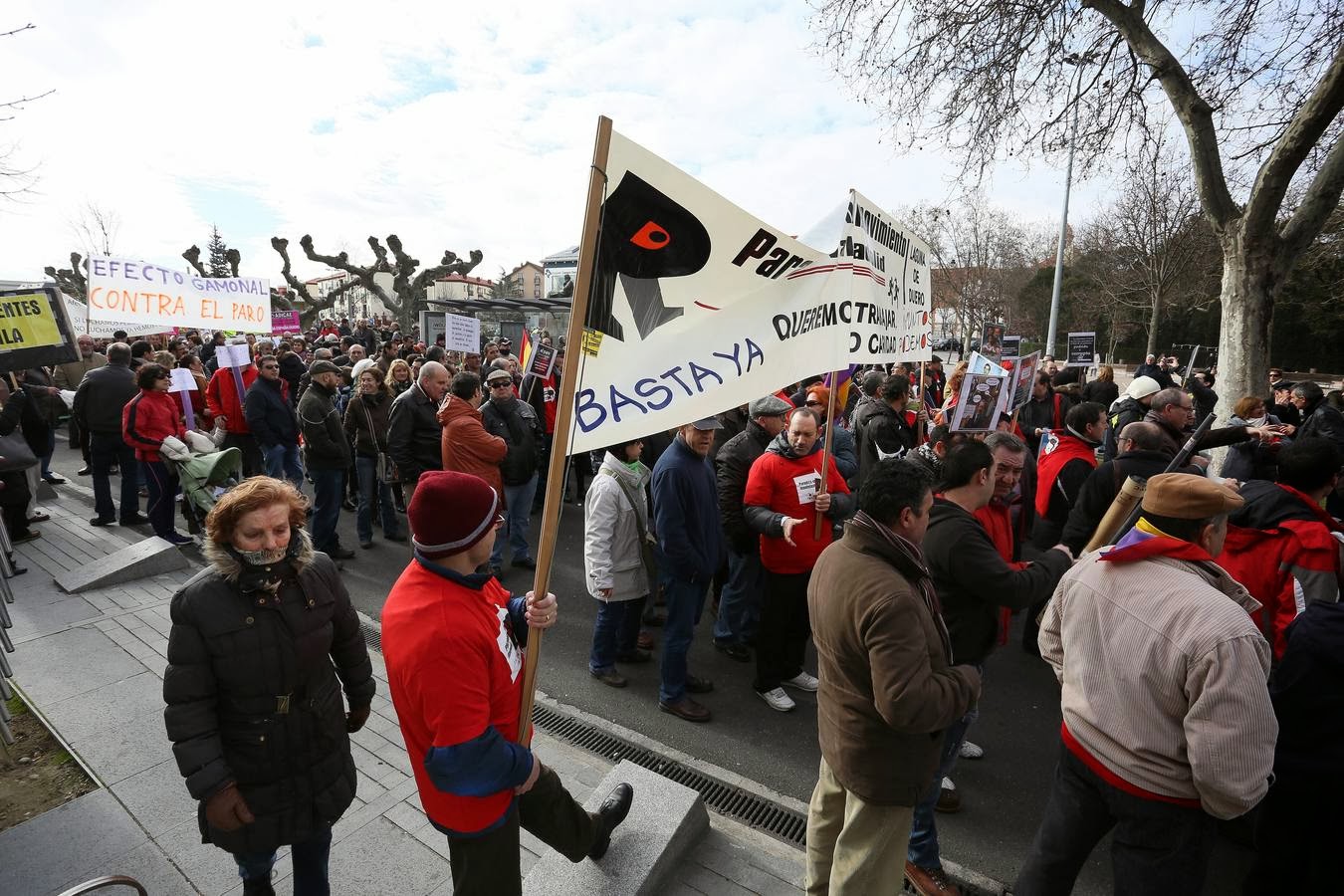
| Языки :: Испанский |
| Аудио |

 |
|
 |
|
76 |
Español |
Spanish |
|
Lección Veintisiete (27) |
||
| ¿Qué le parece a usted? (1) | What does it seem to you? | |
| 1 |
El mejor castellano se habla aquí, en Valladolid; aquí y en Burgos; en toda Castilla la Vieja. |
The best Castilian is spoken, here, in V.; here and in B.; in all old Castile. |
| 2 |
¿Y en Madrid? - En Madrid se habla bien, pero el idioma del pueblo no es tan puro (2). |
And in M.? - In M., they speak well, but the language of the people is not so pure. |
| 3 | ¿De manera que seria mejor para mi
quedarme aquí? Entonces voy a bajar (3). |
So that it would be better for me to stay here? Then I'm going to get out [down]. |
| 4 |
Quédese sentado. En Madrid aprenderá usted muy bien, y no correrá el riesgo de aburrirse (4). |
Remain seated. In M. you'll learn very well, and won't run the risk of being dull. |
| 5 |
¿Y donde se habla el peor español? - Es difícil de decir; |
And where do they speak the worst Spanish ? - It's difficult to say; |
| 6 | casi todas las provincias tienen su acento local; | practically all the provinces have their local accent: |
| 7 |
sin embargo, la gente culta habla correctamente. En Andalucía, sin duda, es donde se pronuncia peor. |
However, cultured people (singular) speak correctly. (It is) in Andalusia, no doubt that [where] they speak [pronounce] worst. |
| 8 |
¿Y en Barcelona? - No me hable usted de Barcelona; los catalanes son unos vanidosos; quieren hablar su dialecto Catalán, en vez del idioma castellano (5), |
And in Barcelona? - Don't speak of B. to me; Catalonians are conceited people; they will speak their Catalonian dialect, instead of the Castilian language, |
| 9 |
y dicen : ¡ « el idioma Catalán » y « el dialecto castellano
»! ¿Qué le parece a usted? |
and they say : " the Catalonian language" and " the
Castilian dialect"! |
| EJERCICIOS | EXERCISE : | |
| 1 |
Copla El naranjo de tu patio cuando te acercas a él se desprende de sus flores y te las echa a los pies. |
The orange-tree in the yard - when you go near [to] it - parts with its blossoms - and throws them at your feet. |
|
El naranjo, the orange-tree; |
| NOTES. | |
| 1 |
"What seems him to his Honour?", What does it seem to you?,
What do you think of it? |
| 2 |
El idioma is more current than la lengua. How many languages do you know? : ¿Cuántos idiomas conoce usted? - Notice that idioma is masculine, in spite of final a. - El pueblo, the people, but also : an inhabited place, village, etc... |
| 3 | Bajo : low; bajar : to lower or to go down. |
| 4 |
Sentado : sitting, seated; de pié : standing. We have seen borrico, which is another name for burro, an ass; hence: aburrir, to bore (transform into an ass), and aburrirse: to feel dull. I feel dull: Me aburro. |
| 5 |
En vez de : instead of. |
